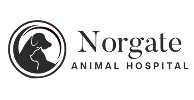Good dental health is vital for your pet’s overall well-being. Unfortunately, many pets suffer from dental diseases that could have been prevented with proper care. While dental surgery can address severe dental issues, it’s better to prevent these problems before they require surgical intervention. This blog will explore essential pet oral care tips that can help you avoid the need for dental surgery, ensuring your pet enjoys a healthy mouth and a happy life.
Understanding Pet Dental Disease
Pet dental disease is common, especially in older animals. By the age of three, most dogs and cats show signs of periodontal disease, a condition caused by the buildup of plaque and tartar on the teeth. Left untreated, this can lead to more severe issues like tooth loss, oral infections, and even systemic diseases that affect the heart, liver, and kidneys.
Signs of Dental Problems in Pets
Recognizing the signs of dental problems early can prevent the need for surgery:
- Bad breath: Persistent foul odor from your pet’s mouth.
- Swollen or bleeding gums: Indications of gum disease.
- Difficulty eating: Chewing on one side, dropping food, or refusing to eat.
- Loose or missing teeth: Advanced dental disease.
- Excessive drooling: Often a sign of oral discomfort.
- Pawing at the mouth: Your pet may be trying to alleviate pain.
If you notice any of these symptoms, consult your veterinarian for an evaluation. Early detection and treatment are crucial for preventing more serious dental issues that might require surgery.
Essential Pet Oral Care Tips
1. Regular Brushing
One of the most effective ways to prevent dental disease is by regularly brushing your pet’s teeth. Just like humans, pets need their teeth cleaned to remove plaque and prevent tartar buildup.
- Choose the Right Tools: Use a toothbrush designed for pets and pet-safe toothpaste. Never use human toothpaste, as it contains ingredients that can be harmful to animals.
- Start Slow: If your pet isn’t used to having their teeth brushed, start by letting them taste the toothpaste and gradually introduce the toothbrush. Be gentle and patient.
- Frequency: Aim to brush your pet’s teeth at least 2-3 times a week, but daily brushing is ideal for the best results.
2. Provide Dental Chews and Toys
Dental chews and toys are designed to help clean your pet’s teeth and massage their gums while they chew. These can be a great addition to your pet’s oral care routine.
- Choose the Right Chews: Look for products approved by the Veterinary Oral Health Council (VOHC), as they have been tested for effectiveness.
- Monitor Chewing: Ensure that the chew is appropriate for your pet’s size and chewing habits to avoid choking hazards or damage to the teeth.
3. Feed a Dental-Friendly Diet
Your pet’s diet plays a significant role in their oral health. Some pet foods are specifically formulated to reduce plaque and tartar buildup.
- Dental Diets: Certain kibble formulas are designed to promote dental health by reducing plaque formation. These diets often have a larger, crunchier texture that helps clean teeth.
- Avoid Table Scraps: Feeding pets table scraps, especially sugary or starchy foods, can contribute to dental problems. Stick to a balanced diet recommended by your veterinarian.
4. Schedule Regular Veterinary Check-Ups
Routine veterinary check-ups are essential for maintaining your pet’s oral health. During these visits, your vet can assess your pet’s teeth and gums, clean their teeth, and catch any potential issues early.
- Professional Cleanings: Even with the best at-home care, pets still need professional cleanings. Your vet will remove plaque and tartar that brushing can’t reach, helping to prevent periodontal disease.
- Dental Exams: Regular exams allow your vet to monitor for any signs of dental disease and recommend treatments before problems escalate.
5. Consider Water Additives and Oral Rinses
Water additives and oral rinses are additional tools that can help maintain your pet’s oral hygiene.
- Water Additives: These are added to your pet’s drinking water and can help reduce plaque and freshen their breath.
- Oral Rinses: Applied directly to your pet’s gums, oral rinses can help reduce bacteria in the mouth and promote healthy gums.
6. Avoid Harmful Chewing Habits
Certain chewing behaviors can damage your pet’s teeth and lead to the need for dental surgery.
- Hard Objects: Avoid giving your pet bones, antlers, or hard plastic toys that can crack or break their teeth.
- Monitoring Play: Supervise your pet during playtime to ensure they aren’t chewing on objects that could harm their teeth.
7. Educate Yourself on Breed-Specific Risks
Some breeds are more prone to dental issues than others. For example, small dog breeds like Chihuahuas and Poodles often have overcrowded teeth, making them more susceptible to dental disease.
- Research Your Breed: Understand your pet’s specific risks and work with your vet to develop a tailored oral care plan.
- Extra Vigilance: For breeds with higher dental risks, more frequent brushing and veterinary visits may be necessary.
The Role of Veterinary Dental Surgery
While preventive care is essential, sometimes dental surgery is unavoidable. In cases of severe periodontal disease, tooth fractures, or oral tumors, surgery may be required to restore your pet’s oral health.
At Norgate Animal Hospital, we offer comprehensive dental surgery services to address these issues. However, our goal is to minimize the need for surgery through proactive dental care.
Conclusion
Maintaining your pet’s oral health is crucial for their overall well-being and can significantly reduce the risk of needing dental surgery. By incorporating regular brushing, providing dental-friendly foods, scheduling routine vet check-ups, and being mindful of your pet’s chewing habits, you can keep their teeth and gums healthy.
If you’re concerned about your pet’s dental health or want to learn more about preventive care, contact us today to schedule an appointment at Norgate Animal Hospital. Our team is dedicated to ensuring your pet enjoys a lifetime of healthy smiles.
